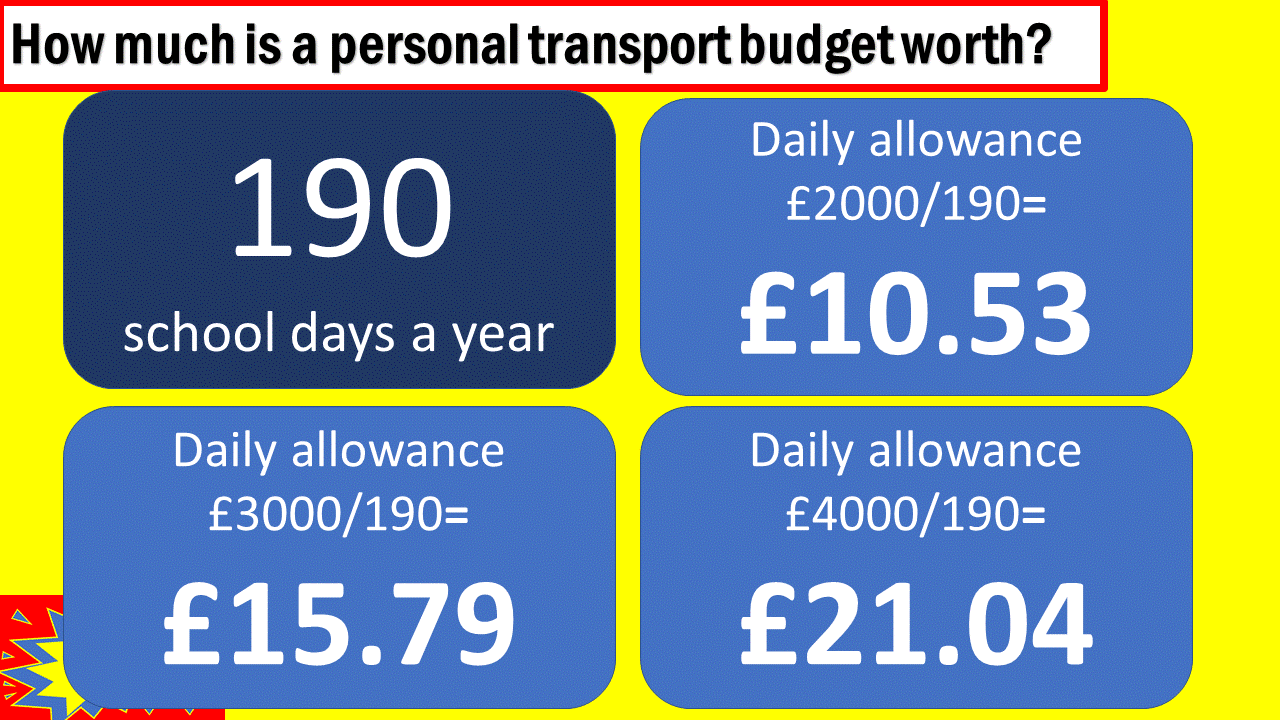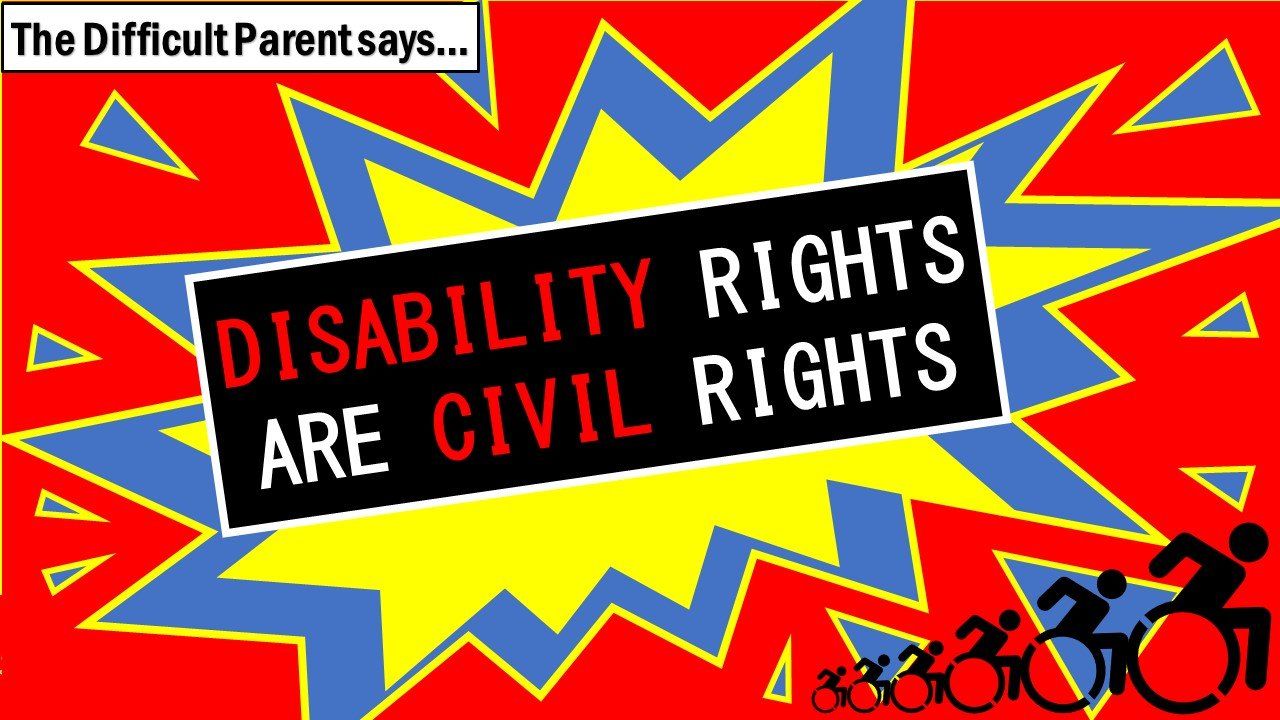Haringey SEND passing on 'risk' in uncertain times to vulnerable families
- By Brian Leveson
- •
- 09 Jan, 2022
- •
In 'uncertain times', Haringey SEND department appear to be passing on risk FROM the SEND transport service TO the service user and their family exacerbated by poor communication and co-production with parents, children and young people (one of the areas OFSTED / CQC identified as a significant areas of weakness).

AT A GLANCE: Haringey SEND have offered personal transport budgets 'in uncertain times'. BUT in doing so they are passing on RISKS from the local authority to vulnerable families. Here is a list of the risks that are passed on from SEND transport to families

The whole thing in 30 seconds
The Haringey SEND department have not consulted nor co-produced with families and all interested parties on their proposals and this change in service provision, as they are required to do by the Department for Transport statutory guidance, as recommended by the AMAZE report and as identified as an area of significant weakness by OFSTED / CQC in their recent joint inspection. This is despite assurances given to Haringey Councillors in November 2021's Children and Young People's Scrutiny Panel that through their recent 'learning review' of the September bus fiasco marked the beginning of real change in the departments approach to working with families.
- The personal transport budget amounts are derisory and range from £10.50 to £21 a day, depending on how far you are away from school and do not the cost of the London Living Wage of £11.05 an hour, that reflects the cost of living in the capital.
- It is unclear how long budgets will run for - just for the period of uncertainty or for a whole year, tying parents into a budget for longer than the duration of any short term 'winter Covid-crisis' wave.
- Fuel cost at the pump have risen roughly 25% over the past year, and the uncertainty of these instability is again transferred over to vulnerable families on fixed derisory budget and away from the local authority. who have millions in bank reserves.
- Haringey's declaration of a climate crisis and the imposition of 'green barriers' to prevent parents taking their children to school
will also be barriers for SEND families who risk getting stressed and being fined for breaching parking restrictions or School Street restrictions of Lower Traffic Neighbourhoods where SEND Transport buses have exemptions already in place.
- SEND transport users are supposed to arrive at school stress free and ready to learn,
and this is the whole purpose of the service. This primary objected appears to be at risk from the un-co-produced and un-consulted proposed Haringey SEND transport changes.
The long 5 minute read
Will personal transport budget's help SEND transport users arrive at school stress free and ready to learn?
The Department for Education issues statutory guidance on making home-to-school travel arrangements for children and young people, and on promoting sustainable travel.
This guidance can be found here: https://www.gov.uk/government/publications/home-to-school-travel-and-transport-guidance
It states that for arrangements to be suitable, they must also be safe and reasonably stress free, to enable the child to arrive at school ready for a
day of study.
But in these 'uncertain times', Haringey SEND department appear to be passing on risk FROM the service to SEND transports user's families and then exacerbating this through poor communication and co-production with parents, children and young people (one of their written statement of action areas of significant weakness) by offering the 550 families of children in receipt of the Haringey SEND transport services the following:
During this uncertain time, you may wish to manage your child’s transport to school via a personal transport budget* (*whereby we offer financial assistance to transport your child).
Difficult Parent says DON’T DO IT - and here is why...
Because there
are uncertain times, and Haringey SEND are passing on the risks of uncertainty onto Haringey SEND families, and potentially worsening the impacts of the 'uncertainty', by not fully informing and consulting families.
Haringey personal budget for transport allowances

When broken down to a daily amount, the budgets are derisory.

In addition, no consideration has been given to the impact of measure to tackle the climate emergency such as school streets, lower traffic neighbourhoods and parking restrictions.
Other risks include fines and stressful journeys
Fines for driving down school streets, entering LTNs and parking
They also face the risk and stress of finding a suitable and safe place to park, and risk incurring a fine of they fail to comply with parking restrictions.
The Department for Education issues statutory guidance on making home-to-school travel arrangements for children and young people, and on promoting sustainable travel.
This guidance can be found here: https://www.gov.uk/government/publications/home-to-school-travel-and-transport-guidance
For arrangements to be suitable, they must also be safe and reasonably stress free, to enable the child to arrive at school ready for a day of study.
And if you walk?
Again, the DFE guidance states:
Consideration should also be given to the walking distance required in order to access public transport. The maximum distances will depend on a range of circumstances, including the age of the child, their individual needs and the nature of the routes they are expected to walk ... ...and should try to be combined with the transport time when considering the overall duration of a journey.
Public Transport
But with the stark fact that people with learning disabilities are six time more likely to die from Covid if they catch it than those without learning disabilities, even with a mask and a triple booster jab, the bus or tube are an unlikely option for the vast majority.
How long are you tied into a personal transport budget for?

Fuel price uncertainty is being passed onto vulnerable families
Fuel prices are at their highest levels for 10 years
Prices at the pump for petrol have risen from £116.67 on 4th January 2021 to £145.55 on 3rd January 2022: this represents a 25% increase over the calendar year. Similarly, prices at the pump for diesel have risen from £120.12 on 4th January 2021 to £148.75 on 3rd January 2022: this represents a 24% increase over the calendar year.
However, unlike SEND parents, Haringey Council hold millions of pounds of financial reserves in the bank.
It is somewhat cynical to pass on the risk of increasing fuel prices from a statutory body to service users.
The graph below and the data used here are from the RAC Fuel Watch website. https://www.rac.co.uk/drive/advice/fuel-watch/

Poor communication and co-production with parents, children and young people
When Difficult Parent challenged the department about the value of personal budget we got the following reply
[The Haringey SEND Transport department] are currently devising a more transparent policy for personal budgets and about how they are calculated.
The SEND Transport department have not worked with families to address practical issues, they have not considered the impact of families and users. They are also making policy changes without following their legal obligations to consult widely and with all interested parties.
Haringey SEND Transport families are not being fully informed of policies, policy changes and their right to consent to any changes in transport provision.

Statutory guidance on making home-to-school travel arrangements for children and young people, and on promoting sustainable travel.
This guidance can be found here: https://www.gov.uk/government/publications/home-to-school-travel-and-transport-guidance
The guidance is clear about the need for parental consent when any travel arrangements by bodies other than then the local authority and the need to consult widely and with all interested parties.
See paragraph excerpts below.


Hart's Ladder of Participation
a) The consultation must take place while the proposals are still at a formative stage (i.e. when the results of the consultation may still make a difference)
(b) The consultee must be given sufficient information about, and reasons for, the proposal to be able to respond in a meaningful and intelligent way and given sufficient time to be able to respond.
(c) Depending on the circumstances of the particular case, it may also be necessary to consult about other options that have been rejected.
(d) There must then be sufficient time for the responses to be considered properly, and the responses must be considered conscientiously, in the course of taking the ultimate decision.
CABINET MEMBER SIGNING - 15th January, 2021












